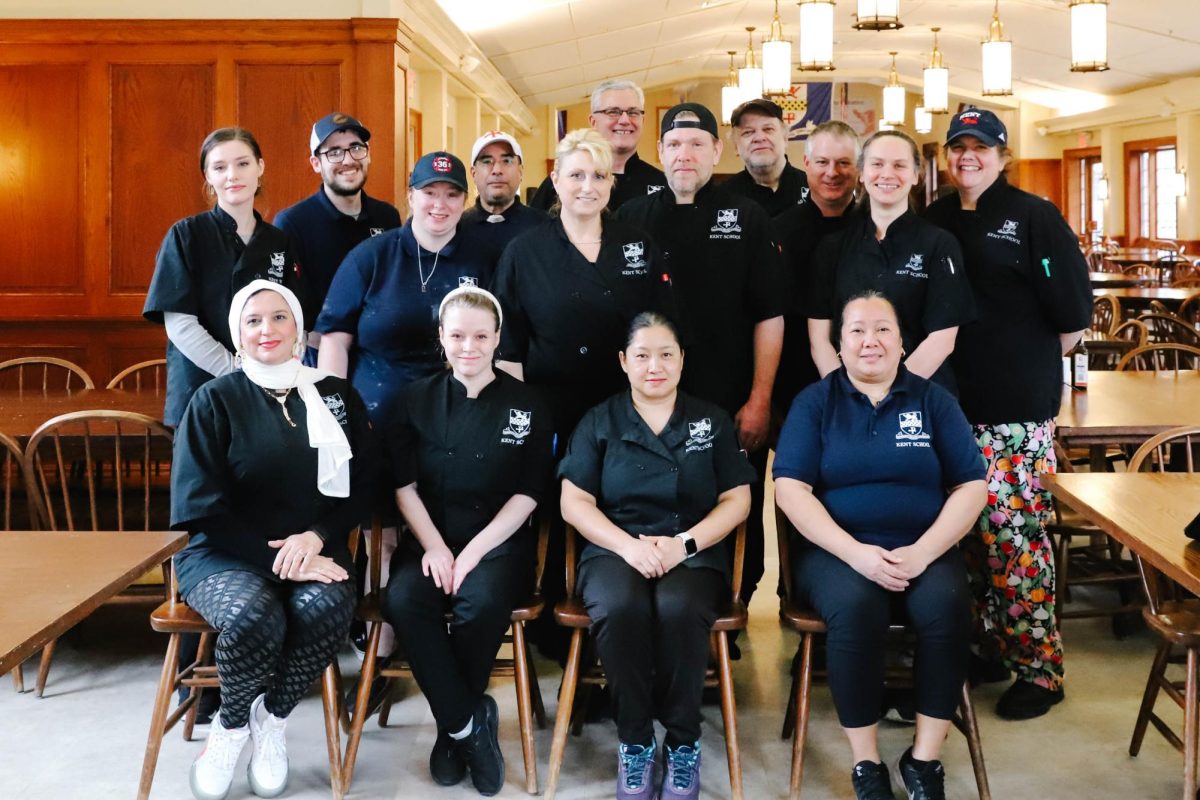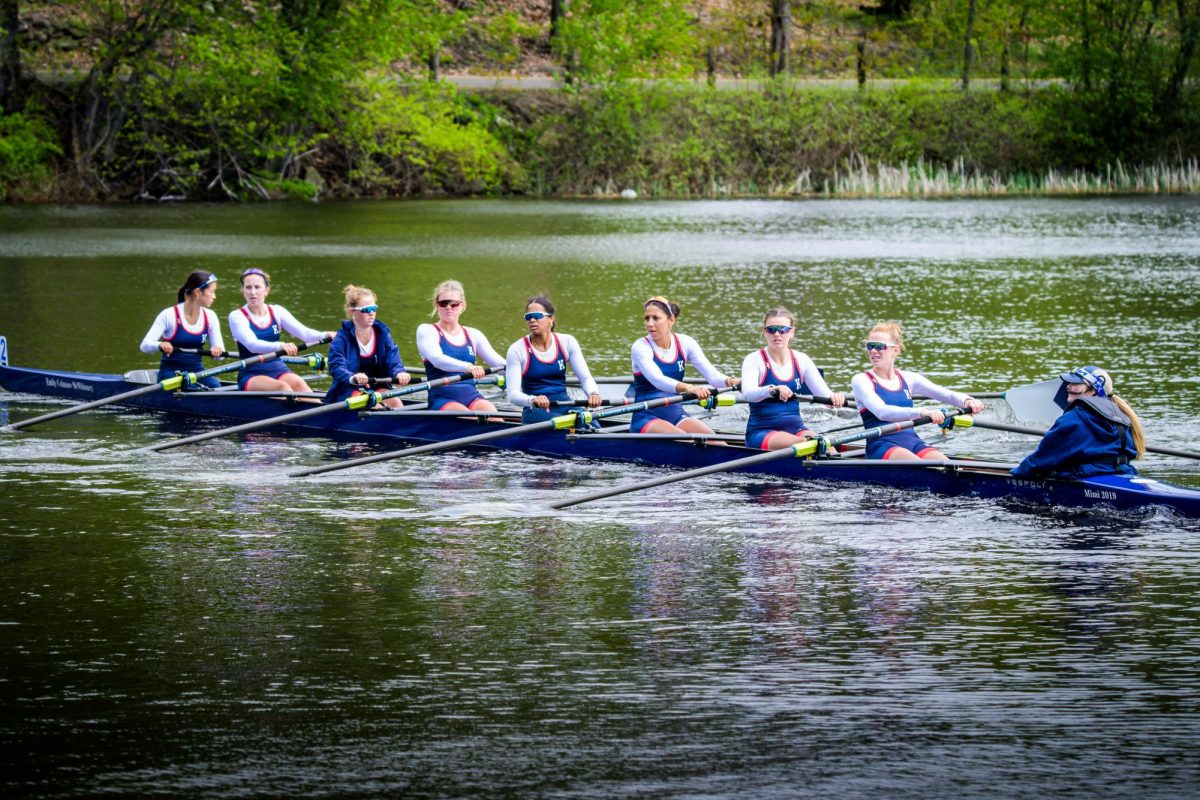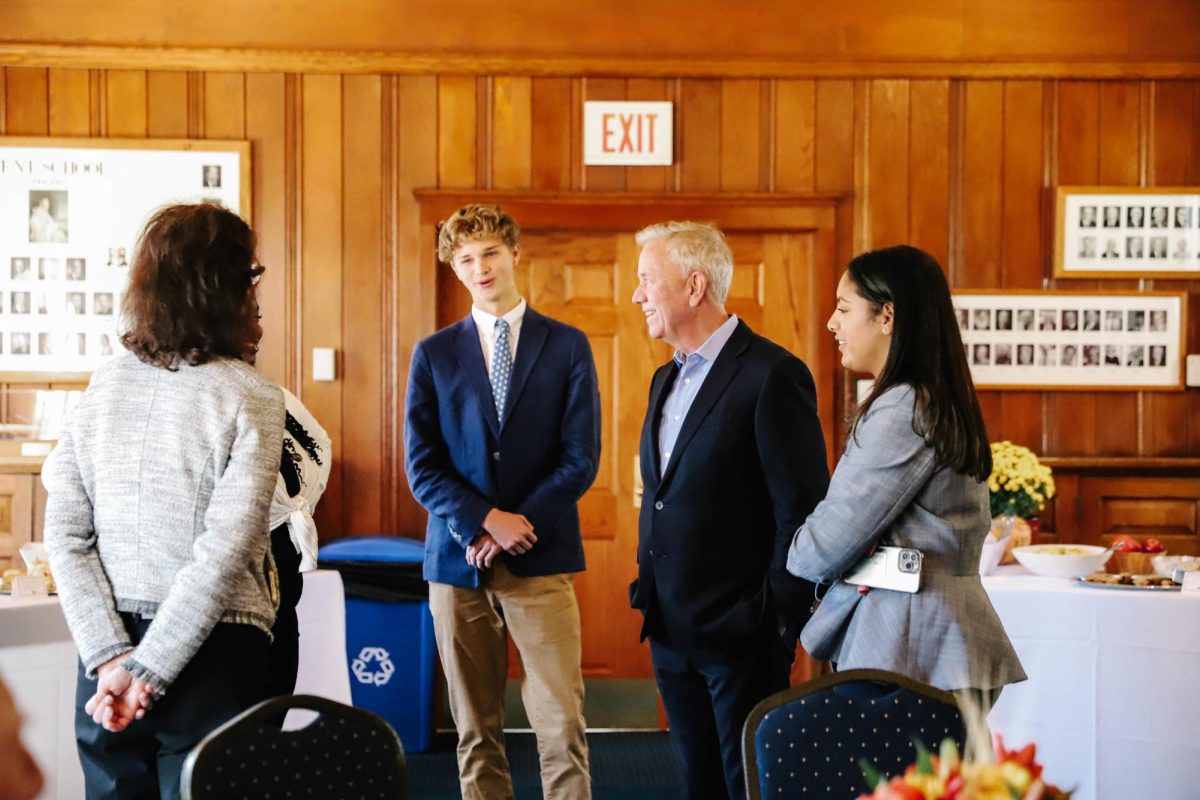The dining hall at Kent School is more than just a place for students and staff to grab meals; it’s the heart of daily life on campus. Behind the smooth operations, Ms. Duncan and Mr. Hudson, two of the three food service managers in the dining service team, manage everything from menu planning to handling unexpected emergencies. Their work often goes unnoticed, but as they reflect on their daily efforts, they see this as a sign of success. Their approach aligns with the ancient Chinese concept of “Wu Wei Er Zhi,” an idea from the Analects of Confucius that translates to “achieving through non-action.” Though non-action may sound passive, it refers to solving problems so efficiently that the effort is invisible to others.
For Ms. Duncan and Mr. Hudson, each day in the dining hall begins long before the students arrive for breakfast. “I come in early to assess staffing, check product quality, and make sure we have everything we need for the day,” Mr. Hudson explained. As the food service director, his job involves managing operations and coordinating with various teams. “It’s really about communication—talking with staff, assessing how they’re doing, and making sure everyone knows what’s needed.”
Ms. Duncan, who has been working in the dining hall since 2007, added that the key to smooth operations lies in thorough planning. “We do a lot of preparation during school breaks—menu development, recipe testing, and deep cleaning projects,” she shared. Sustainability has been a growing focus, but balancing students’ preferences with the logistics of feeding 800 people is challenging. “Almost all the steps require financial backing,” Mr. Hudson noted. “For example, if we stop using paper cups, that saves money on disposables, but we’d need to hire someone to wash 100,000 cups over the year.”
An integral part of dining hall management is handling the unexpected, often without anyone noticing. “One time, just 15 minutes before opening, a sprinkler burst over the hotline,” Mr. Hudson recalled. “Water poured through the ceiling, but the team quickly mopped, sanitized everything, replaced the food, and we opened on time. It’s moments like these that make me proud of the amazing team we have.”
For Ms. Duncan, adaptability has become second nature. “We’ve had situations where the hamburger delivery didn’t arrive, and we had to switch to chicken burgers last minute,” she said. “More serious situations, like power outages, force us to shift to simpler meals like deli sandwiches. We do whatever it takes to ensure students are fed.”
Both managers agree that these moments define their success. “Our goal is that nobody realizes when there’s been an issue,” Ms. Duncan added. “When the community doesn’t notice, that’s when we know we’ve done a great job.”
“When you’re doing your job well, people don’t see the effort,” Mr. Hudson said. “Nobody wants to know how hard it was to get their lunch. They just want to eat. That’s part of the job—making the hard parts invisible.”
Ms. Duncan echoed this sentiment: “We want everything to feel seamless for the students, even when we’ve been scrambling behind the scenes. It’s about being prepared enough that when things go wrong, you can solve it without anyone realizing.”
While the daily operations keep the team busy, The dining hall is constantly evolving, and much of that evolution is driven by student feedback. Ms. Duncan shared how a recent student poll resulted in new additions to the menu. “We did a poll for the new Froyo flavor, and cappuccino won, but not by much—it was close,” she said. “We also added General Tso’s chicken more often because students requested it, and we’ve started offering grilled chicken every Wednesday after students asked for healthier proteins instead of just fried food.”
Looking ahead, sustainability remains a priority, with efforts to reduce the use of disposables and increase collaboration with local farms. “We recycle our cooking oil for biofuel and partner with local suppliers for dairy and fruit, but there’s always more we can do,” Mr. Hudson explained. “The challenge is finding the right balance between sustainability and practicality in the financial aspect.”
Fostering collaboration with students and other departments is another goal. “We’d love to get more feedback on what students are creating at the stir-fry station or find ways to better support school events,” Ms. Duncan said. “It’s these small interactions that make the day more meaningful for both staff and students.”
Clearly, our Dining Hall team is working hard on all fronts to manage their program so well that the effort is invisible, but it does not go unnoticed!






